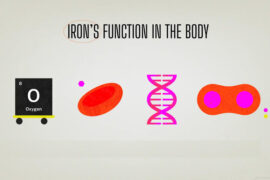Tingling sensations in the extremities, along with persistent fatigue, are distressing symptoms that can significantly impact daily life. One potential cause to consider is vitamin B12 deficiency. Also known as cobalamin, vitamin B12 is essential for nerve function, energy metabolism, and red blood cell production. When deficient, individuals may experience neurological symptoms like tingling or numbness in their extremities due to nerve damage, as well as fatigue due to impaired energy production. It’s crucial to address B12 deficiency promptly through dietary changes, supplementation, or medical intervention to alleviate symptoms and prevent further complications.
Why you might need a vitamin B12 test if you’re experiencing tingling nerves and fatigue:
Nerve health:
Nerve health is intricately linked to vitamin B12, which plays a crucial role in maintaining the integrity of the nervous system, including the myelin sheath that insulates and protects nerves. When there’s a deficiency in vitamin B12, nerve damage can occur, manifesting as tingling, numbness, or burning sensations in the extremities or other parts of the body—a condition referred to as paresthesia. These sensations, often likened to “pins and needles,” can worsen over time if the deficiency remains untreated. Therefore, ensuring adequate intake of vitamin B12 through diet, supplementation, or medical intervention is vital for preserving nerve health and alleviating associated symptoms.
Fatigue and weakness:
Fatigue and weakness are common symptoms associated with vitamin B12 deficiency due to its crucial role in energy metabolism. Vitamin B12 aids in the conversion of food into usable energy for the body, and insufficient levels can result in decreased stamina and vitality. Individuals lacking in vitamin B12 may experience chronic tiredness, even after sufficient rest, and may struggle with muscle weakness or find routine tasks challenging. Thus, ensuring adequate intake of vitamin B12 is essential for maintaining energy levels, combating fatigue, and supporting overall vitality.
Risk factors:
Indeed, poor dietary intake, malabsorption disorders, aging, and certain medications are significant risk factors for developing vitamin B12 deficiency. Here’s a bit more detail on each:
- Poor Dietary Intake: Since vitamin B12 is primarily found in animal-based foods, individuals who follow vegan or vegetarian diets may struggle to get enough of this vitamin. Even those who consume animal products may not get sufficient amounts if their diet lacks variety or if they have a low intake of these foods.
- Malabsorption Disorders: Conditions that affect the absorption of nutrients in the digestive tract can lead to vitamin B12 deficiency. Pernicious anemia, an autoimmune condition where the body attacks cells in the stomach that produce intrinsic factor (needed for B12 absorption), is a notable example. Other conditions such as celiac disease, Crohn’s disease, and gastrointestinal surgery can also impair absorption.
- Aging: As individuals age, various physiological changes can affect the absorption of vitamin B12. In particular, the production of stomach acid and intrinsic factor may decline, impairing the body’s ability to absorb B12 from food sources. This age-related decline in absorption contributes to the higher prevalence of vitamin B12 deficiency among older adults.
- Certain Medications: Long-term use of medications like proton pump inhibitors (PPIs), used to treat acid reflux and ulcers, can reduce the production of stomach acid, which is necessary for releasing vitamin B12 from food. Metformin, a medication commonly prescribed for type 2 diabetes, may also interfere with B12 absorption or metabolism. Antacids can also affect B12 absorption by reducing stomach acid levels.
Importance of Testing:
Testing for vitamin B12 levels is essential due to the potential consequences of deficiency on nerve health and energy levels. Timely detection through a simple blood test allows healthcare providers to assess the levels of vitamin B12 in the blood accurately. Based on the results, appropriate management strategies such as supplementation or dietary adjustments can be recommended to address deficiencies effectively. Regular monitoring of vitamin B12 levels is particularly important for individuals with risk factors such as poor dietary intake, malabsorption disorders, or certain medications, as it enables early intervention to prevent or mitigate the adverse effects of deficiency on overall health and well-being.
Ajay Shah guided, “If you’re experiencing tingling nerves, persistent fatigue or other symptoms suggestive of vitamin B12 deficiency, don’t ignore them. Consulting with a healthcare professional and requesting a vitamin B12 test can provide valuable insights into your health status and guide appropriate treatment strategies. Addressing vitamin B12 deficiency early on can help alleviate symptoms, prevent complications, and restore overall well-being.”
Bringing her expertise to the same, Dr Farah Ingale, Director-Internal Medicine at Hiranandani Hospital in Vashi, shared, “Tingling nerves and fatigue can be symptoms of various conditions, ranging from vitamin deficiencies to neurological disorders. Vitamin B12 is a critical component in forming and maintaining your myelin sheath. Being deficient in Vitamin B12 can cause damage to your myelin sheath, which will disrupt nerve signals to and from your brain. One of the common symptoms of myelin damage related to vitamin B12 deficiency is numbness and tingling in the hands and feet.”
She pointed, “Fatigue is one of the first signs of low levels of Vitamin B12 in your body. This is because Vitamin B12 helps red blood cells to carry oxygen throughout your body. Apart from fatigue, other symptoms of B12 deficiency can include rapid breathing or shortness of breath, headaches, indigestion, loss of appetite, palpitations, problems with vision, diarrhea, a sore or red tongue, feeling weak, problems with memory, judgment and understanding (cognitive changes).”
Dr Farah Ingale stated, “Changes in brain chemistry, especially in neurotransmitters like melatonin, serotonin, and hypocretin, all impact wakefulness and contribute to chronic tiredness. In specific neurologic conditions, fatigue may manifest differently; for example, people with Multiple sclerosis often experience fatigue caused by nerve damage that prevents them from transmitting electrical signals properly. With small fiber neuropathy, fatigue occurs partly because the blood supply isn’t keeping up with muscle demand.”
Treating vitamin B12 deficiency:
Those are common approaches to treating vitamin B12 deficiency, depending on the severity of the deficiency and the underlying cause. Here’s a breakdown of the treatment options mentioned:
- Dietary Changes: Consuming foods rich in vitamin B12, such as clams, liver, fortified cereal, trout, salmon, and eggs, can help increase B12 levels in individuals with mild deficiencies or those at risk of deficiency due to dietary factors.
- Vitamin B12 Oral Supplements: For individuals with mild to moderate deficiencies or those who can’t obtain enough B12 from their diet, oral vitamin B12 supplements are often prescribed. These supplements come in various forms, including tablets, capsules, and sublingual (under the tongue) preparations.
- Vitamin B12 Injections (Hydroxocobalamin): In cases of severe vitamin B12 deficiency or when malabsorption issues are present, healthcare providers may recommend injections of hydroxocobalamin, a form of vitamin B12. These injections are typically administered every 2-3 months to maintain adequate B12 levels.
- Treatment for Neurological Symptoms: If vitamin B12 deficiency leads to neurological symptoms affecting the nervous system, such as peripheral neuropathy or cognitive impairment, more aggressive treatment may be necessary. In such cases, injections of vitamin B12 may be administered more frequently, possibly every two months, under the guidance of a hematologist or neurologist.
- Alternative Administration Methods: In cases where oral supplementation is not feasible due to intolerance, persistent vomiting, or severe deficiency, vitamin B12 injections, nasal sprays, or sublingual preparations may be recommended to ensure adequate absorption of the vitamin.
It’s essential for individuals with suspected or confirmed vitamin B12 deficiency to work closely with their healthcare providers to determine the most appropriate treatment plan based on their specific needs, symptoms, and underlying causes of deficiency. Regular monitoring of B12 levels and symptoms is also crucial to assess the effectiveness of treatment and make any necessary adjustments.
Disclaimer:
The information contained in this article is for educational and informational purposes only and is not intended as a health advice. We would ask you to consult a qualified professional or medical expert to gain additional knowledge before you choose to consume any product or perform any exercise.








